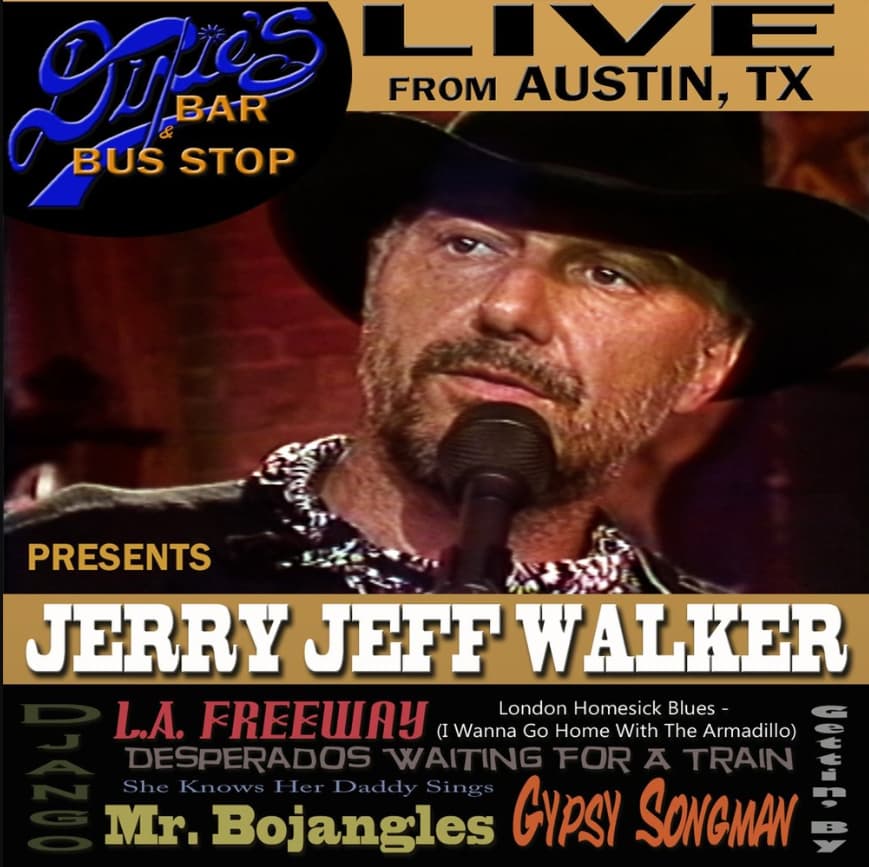
Jerry Jeff Walker – “L.A. Freeway”: The Longing for Escape and the Road Back Home
For those of us who appreciate the art of the well-turned phrase and the profound simplicity of folk poetry, “L.A. Freeway” is a gem. Though it is often rightfully associated with the man who wrote it—the masterful Texas songwriter Guy Clark—it was through the gravelly voice and wandering soul of Jerry Jeff Walker that the song first found its wide audience and became an essential cornerstone of the Outlaw Country and progressive folk movements. Walker included his version on his self-titled 1972 album, Jerry Jeff Walker, a recording that captured the hopeful restlessness of the early 70s.
The story behind this iconic road song is pure songwriter legend. Guy Clark penned it in 1970, a few months after moving to Los Angeles to try his hand in the music business. The city, with its sprawling concrete arteries and ceaseless traffic, proved to be a disheartening experience for the young Texan. One morning, after a late-night gig drive back from San Diego, Clark woke up in the car—his wife, Susanna, was driving—and muttered the phrase that would become the song’s signature line: “If I could just get off of this L.A. Freeway without gettin’ killed or caught.” Recognizing the poetic weight of those words, he quickly jotted them down with his wife’s eyeliner on a handy hamburger sack. It was the moment he knew he had to leave.
The meaning of the song transcends mere geography. On the surface, it is a glorious, defiant farewell to the hustle and sprawl of Los Angeles: “Pack up all your dishes, make note of all good wishes / Say goodbye to the landlord for me, that son-of-a-bitch has always bored me.” But beneath that cheeky defiance lies a deep, universal yearning for a life of authenticity and open spaces. It is the theme of finding home again, a powerful metaphor for escaping the concrete confines—both literal and psychological—of the commercial, manufactured world. When Walker sings of wanting “some dirt road backstreet,” he’s voicing the sentiment of every person who has ever felt suffocated by ambition and longed for simpler pleasures and truer community.
When Jerry Jeff Walker released it, the song achieved a minor success, peaking at No. 98 on the U.S. Billboard Hot 100 chart in 1972. While this chart position seems modest, it vastly understates the song’s importance. In the burgeoning progressive Texas music scene, where artists like Walker, Clark, Townes Van Zandt, and Willie Nelson were redefining country music, this song was revolutionary. Walker’s endorsement, giving voice to a fellow songwriter’s yearning for a place where a musician could be true to their craft rather than chasing hits, helped lay the foundation for a whole new movement. It was a signpost pointing away from the glitz of the West Coast and towards the authenticity of Austin and Nashville.
For those of us who cherish the storytelling tradition in music, “L.A. Freeway” is a perfect acoustic road song, delivered with a casual sincerity that makes it feel like an old friend’s confession over coffee. It speaks volumes about the value we place on freedom, the search for a meaningful life, and the enduring human need to escape the traffic of our own making. It’s a nostalgic echo of a time when packing up a pickup truck and heading back to the wide-open spaces—mental or physical—was the ultimate declaration of independence.